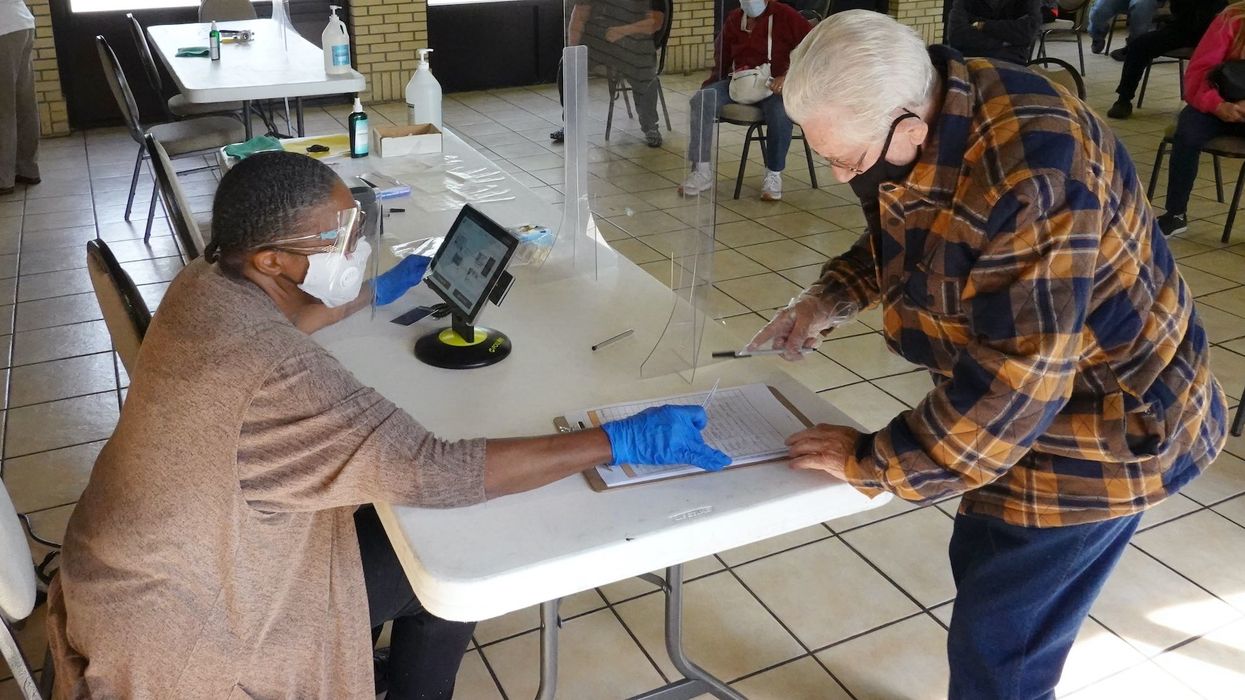
Photo by Scott Olson/Getty Images

Don't worry — it's 'temporary'
If you're a voter in Massachusetts who went through the effort to vote early this year but then you died before Election Day, don't worry: The state is still going to count your vote thanks to a new law passed by the state legislature this year.
Never mind that counting the votes of the dead could lead to problems: This is just a "temporary law," WBZ-TV reported.
Why do it? COVID-19, of course.
Massachusetts Secretary of State Bill Galvin announced Monday that, because of the coronavirus pandemic, anyone who voted early but dies before Election Day (Nov. 3) this year will still have their vote counted. Also, the window for early voting has been expanded.
"It's pandemic-era time," Galvin said at a news conference, WBZ reported. "So we had to expand the time for voting."
Before now, early voting in the Bay State was 10 days before an election, and if a person voted early and was discovered to have died prior to Election Day, that voter's ballot would not be counted.
"These are people who are alive and competent when they voted, but they may have died unexpectedly after they voted," the attorney general said. "In past times, if the local officials knew they were dead — had died — even though they had legally voted when they cast the ballot, they would have discarded the ballot, not counted it."
But apparently that did not sit well with the state's leaders.
According to the Boston Globe, the "temporary pandemic-era law passed this summer" by the legislature is a notable shift in the state's voting rules.
This year early voting in Massachusetts has been extended by an additional 20 days, giving voters essentially a month to cast their votes.
And not only has the window expended, apparently the definition of what constitutes a legitimate vote has been changed, too.
Now Massachusetts voters who die after casting their early ballot but before Election Day will have their ballots included in the final tally.
The new provision that allows the votes of the dead to suddenly count comes thanks to language slipped into the state's early voting expansion bill. The law bars election officials from rejecting an early or absentee ballot this year "solely because the voter became ineligible to vote by reason by death after casting the ballot," the Globe reported.
How many votes will that impact? Galvin guessed not many, calling it "extremely rare" and saying, "It's not a significant number of ballots."
"It's certainly not going to affect the outcome of the election," he added. "And if it were to — I speculate here — but if it were to, obviously there'd probably be some followup litigation. But since I'm already reaching my quota of being sued this year, I'm not going to go there."
Massachusetts is not the first state to have such a provision. The Globe said at least 11 states have similar laws, including Florida and Hawaii.
As of two years ago, at least 17 state states had explicitly rejected counting ballots of people who died before the election, the Globe noted.